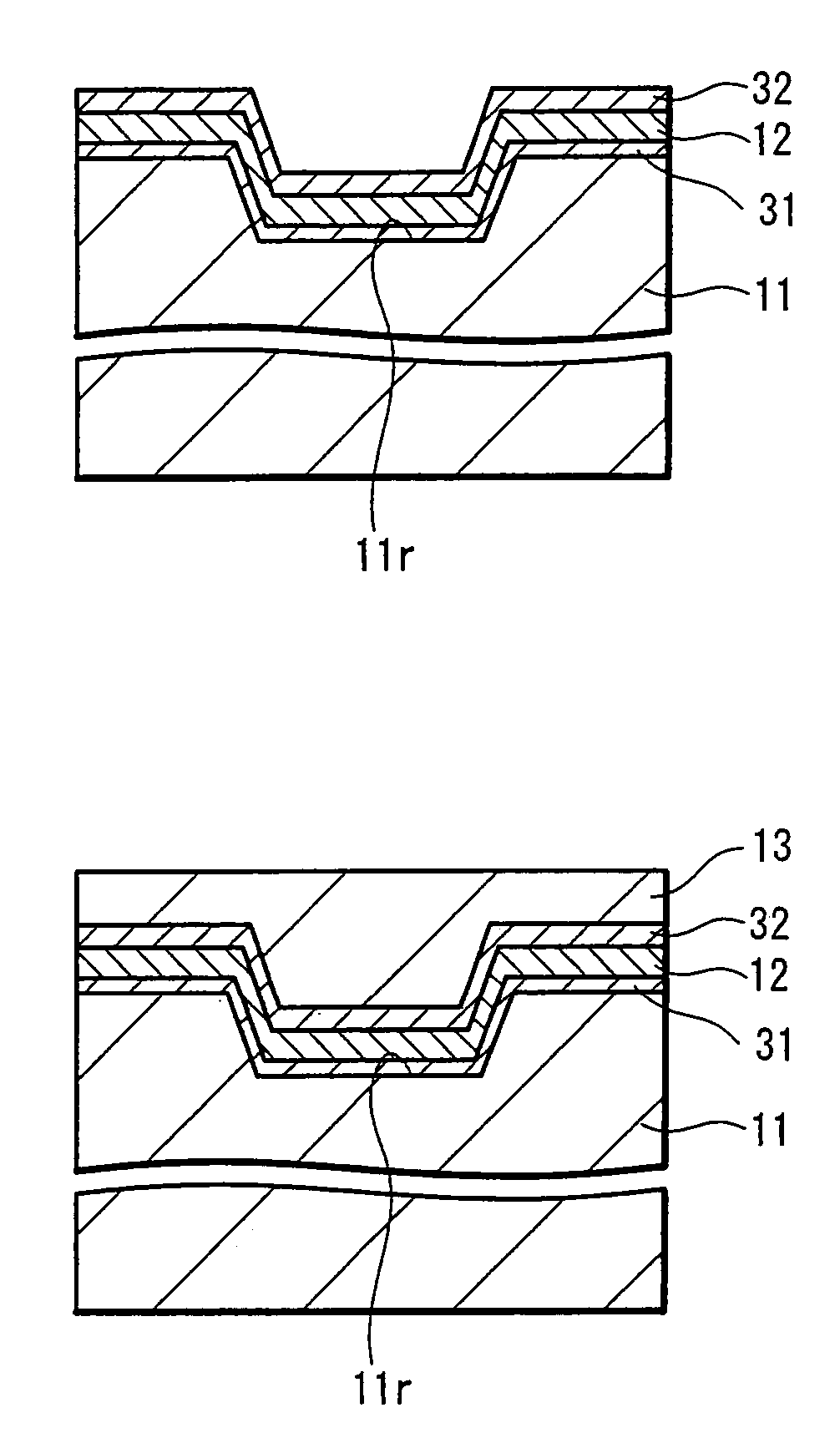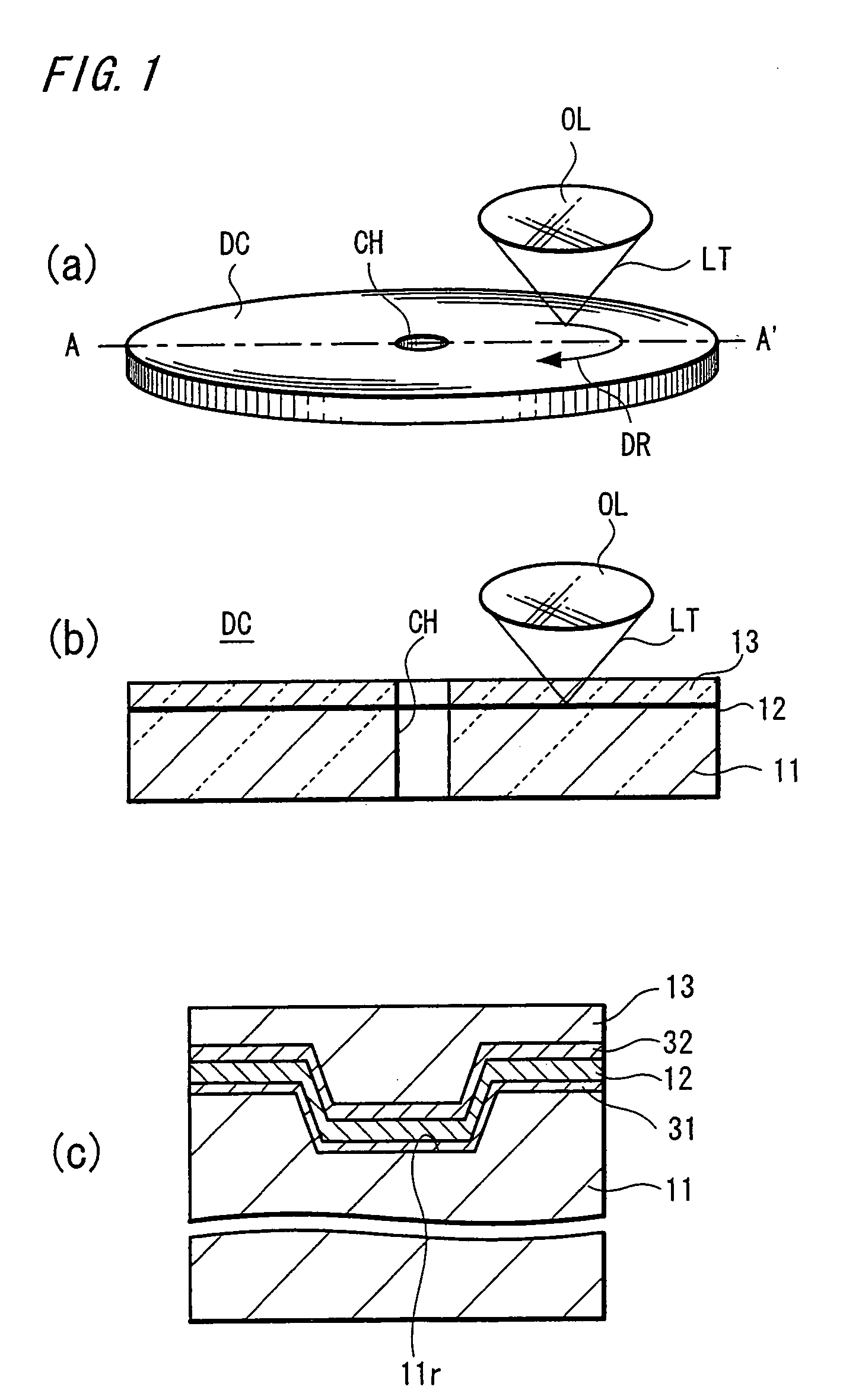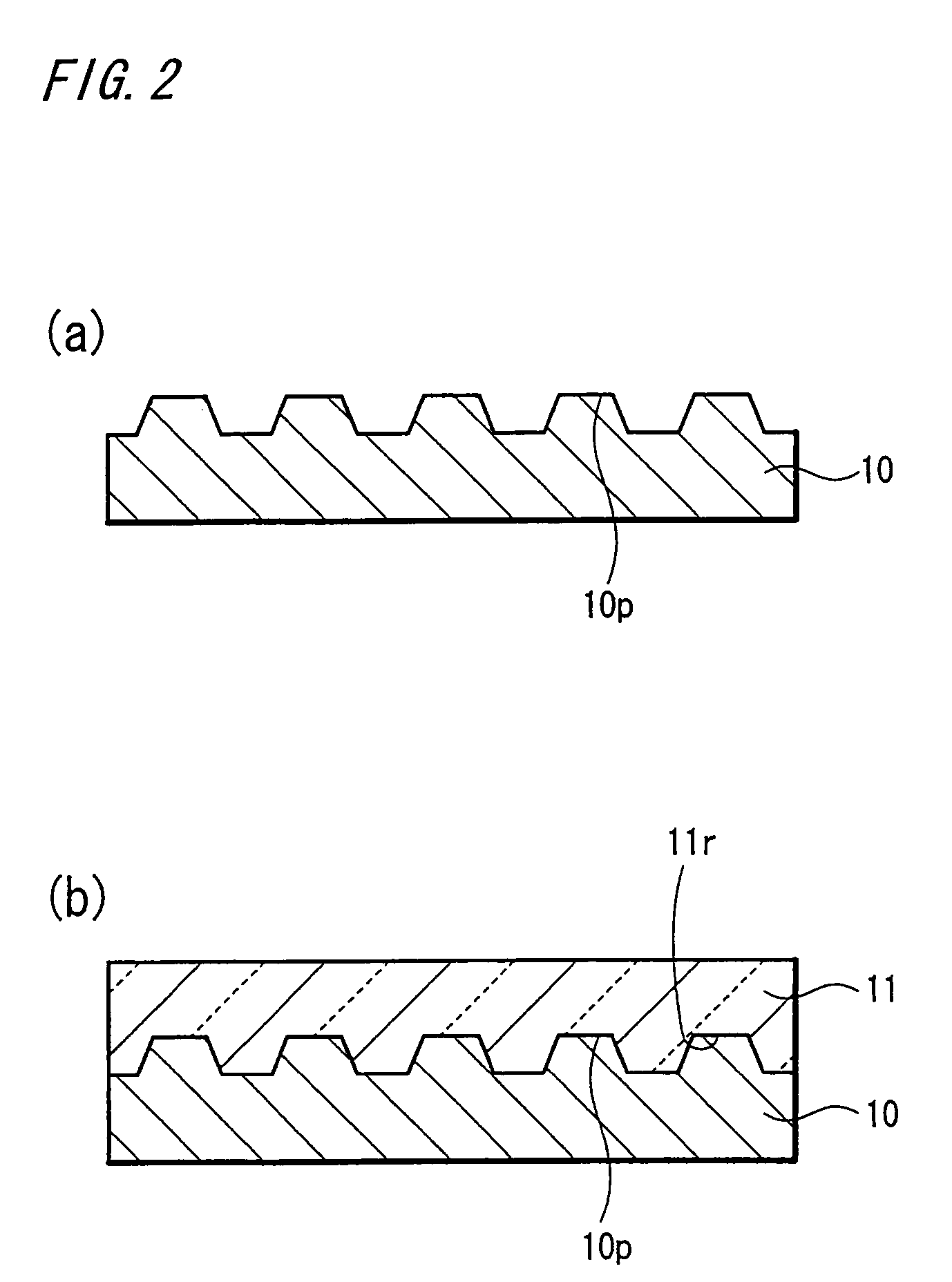Optical recording medium
a recording medium and optical technology, applied in the field of optical recording mediums, can solve the problems of insufficient stabilization of recording characteristics under high temperature and high humidity, and achieve the effect of improving the deterioration of recording characteristics
- Summary
- Abstract
- Description
- Claims
- Application Information
AI Technical Summary
Benefits of technology
Problems solved by technology
Method used
Image
Examples
example 1
PRACTICE EXAMPLE 1
[0082]A disc substrate was prepared, on the surface of which the concave and convex shape dividing the track area was formed. The concave and convex shape was made as a spiral continuous groove with a 0.32 μm pitch, and the depth of the concave and convex shape was made to be 20 nm.
[0083]On the surface of the concave and convex shape thus formed on the disc substrate, the first protective layer 31 was formed by spattering SnO2 with a thickness of 10 nm.
[0084]On the first protective layer 31 was deposited a composition SnxNyox (x=31 atomic %, y=10 atomic %, z=59 atomic %) using a chemical compound composed of tin (Sn), nitrogen (N) and oxygen (O) to have the above composition ratio, with a film thickness of 50 nm to form an optical recording layer.
[0085]Further on that layer was deposited SiO2 with a film thickness of 30 nm to form the second protective layer, and on that layer was formed a light-transmittable layer of 0.1 mm thickness by sticking a film of light-tr...
example 2
PRACTICE EXAMPLE 2
[0093]In the composition SnxNyOz of the optical recording layer 12 in the practice example 1, the composition ratio x, y, z was made to be x=69 atomic %, y=10 atomic %, z=21 atomic %.
[0094]In this optical disc also, no change in jitter was recognized under high temperature and high humidity.
example 3
PRACTICE EXAMPLE 3
[0095]Although the structure is the same as that of the practice example 1, the composition of the optical recording layer was changed into SnxNyOz (x=45 atomic %, y=19 atomic %, z=36 atomic %) to manufacture a sample I of an optical disc.
[0096]In this optical disc also, no change in jitter was recognized under high temperature and high humidity.
[0097]While the above-described practice example has the optical recording layer 12 composed of SnxNyOz, if the optical recording layer 12 is composed of SnxNyOz (30<x<70 (atomic %), 1<y<20 (atomic %), 20<z<60 (atomic %)) mixed with a refractory metal Pd of 1 atomic % to 20 atomic %, then it is possible to increase the viscosity when the optical recording layer is melted at the time of recording by irradiation with a laser beam, to improve a decrease in sharpness of a recording mark and a change in position due to arising fluidity, and to enhance further improvement in jitter and the preservation property.
[0098]In this case...
PUM
| Property | Measurement | Unit |
|---|---|---|
| thickness | aaaaa | aaaaa |
| thickness | aaaaa | aaaaa |
| wavelength | aaaaa | aaaaa |
Abstract
Description
Claims
Application Information
 Login to View More
Login to View More - R&D
- Intellectual Property
- Life Sciences
- Materials
- Tech Scout
- Unparalleled Data Quality
- Higher Quality Content
- 60% Fewer Hallucinations
Browse by: Latest US Patents, China's latest patents, Technical Efficacy Thesaurus, Application Domain, Technology Topic, Popular Technical Reports.
© 2025 PatSnap. All rights reserved.Legal|Privacy policy|Modern Slavery Act Transparency Statement|Sitemap|About US| Contact US: help@patsnap.com



